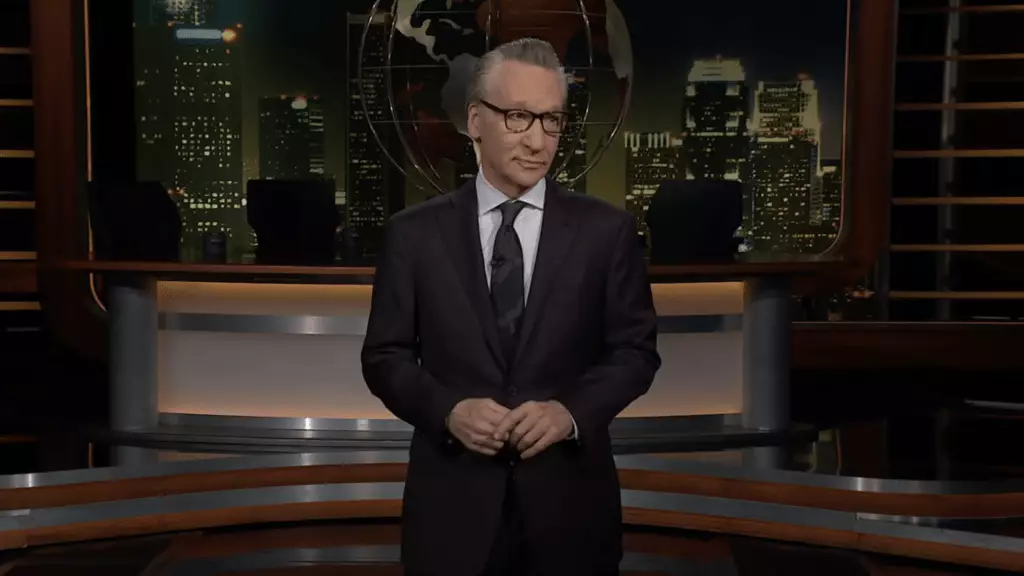In the contemporary political landscape, where entertainment and serious discourse frequently collide, events like Donald Trump’s rally at Madison Square Garden serve as a microcosm of broader societal issues. The atmosphere is charged, where humor can either bridge divides or deepen them, as exemplified by the recent commentary from Bill Maher on the selection of comedian Tony Hinchcliffe to perform at the rally.
The integration of comedians into political events is not new; however, the choice to feature a controversial figure like Hinchcliffe reveals the precarious nature of humor in fraught political environments. Maher expressed his concerns, noting how the “insult comic” approach is emblematic of Trump’s style, reflecting not just personal taste but a strategy that can alienate rather than attract. Hinchcliffe’s demeaning comments about Puerto Rico starkly illustrate how humor can cross lines, creating a hostile environment rather than a shared space for dialogue. This raises the question: what role should comedy play in political rallies?
Maher pointed out that even the intended audience—the Trump supporters—reacted unfavorably to Hinchcliffe’s routine. This reaction underscores a disconnect between the performance and the expectations of the crowd, highlighting a fundamental aspect of effective communication: understanding your audience. The expectation of humor in a political context should be to unify or provoke critical thought, not to belittle entire demographics.
The conversation naturally extends into the territory of free speech. Maher, a longtime advocate for free expression, found the humor used in Hanichcliffe’s routine troubling, emphasizing that while jesting at the expense of marginalized groups is often justified as ‘just comedy,’ the implications can be damaging. The thrust of Maher’s critique did not deny the comedian’s right to speak but rather questioned the appropriateness of the setting. He likened Hinchcliffe’s performance to “bringing cocaine to a funeral,” suggesting that some comedic styles are ill-suited for their context.
Furthermore, the backlash from Trump’s supporters to any mockery, particularly when it touches on sensitive subjects such as Puerto Rico’s struggles, underscores a broader cultural critique. It raises an essential dilemma in contemporary discourse: how do we balance the right to critique while maintaining respect for vulnerable communities? In a world that is often divided along political lines, humor may be found to reinforce ideological barriers instead of dissolving them.
As Maher analyzed the responses from both sides of the political spectrum, his insights illuminated an interesting dichotomy. He argued that Democrats, including President Biden, risk appearing “weak” when they retaliate against objectionable jokes. Biden’s previous remarks, which he later clarified, reveal how personal attacks can backfire and lead to a victimization of one’s political identity. By labeling Trump supporters as “garbage,” he opened the door for accusations of hypocrisy. Maher likened the situation to a comedic double standard where if the tables were turned, the outrage would be deafening.
In a contrasting manner, Vice President Kamala Harris’s rally at the White House subsequent to Trump’s event represented an attempt at uniting voices by framing her arguments within a context of hope and community. Harris’s aspirational rhetoric sought to create a space for dialogue rather than divisiveness. In her speech, she emphasized unity over enmity, pledging to seek common ground—a stark contrast to the derisive jabs thrown by some in the opposing camp, including Hinchcliffe.
Ultimately, the dialogue surrounding the Madison Square Garden rally and its comedic undertones serves as a reflection of current societal tensions. It reiterates the importance of content, context, and audience in discussions that straddle the line between entertainment and political discourse. As both sides grapple with the implications of their narratives, the hope remains that comedic endeavors can evolve past insensitivity and approach the political discourse with the intent to enlighten and empower rather than diminish.
The challenge for both comedians and politicians alike is clear: in order to navigate this complex landscape, a more reflective, respectful approach to humor and dialogue is imperative. Only then can political events fulfill their potential as spaces for connection rather than division.
